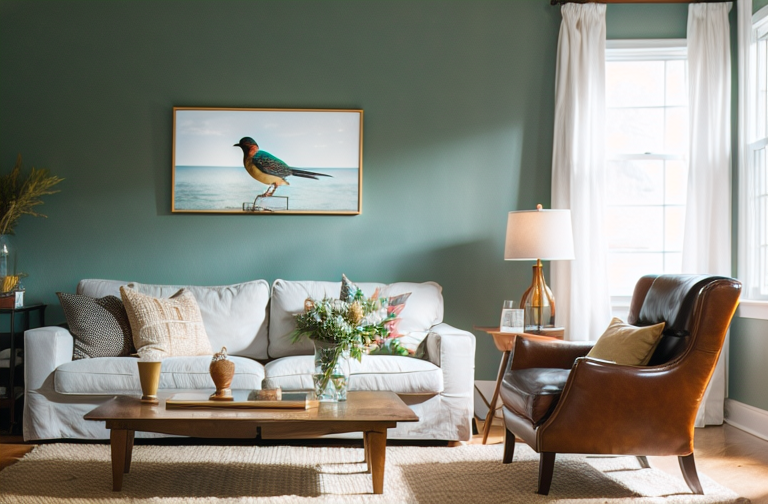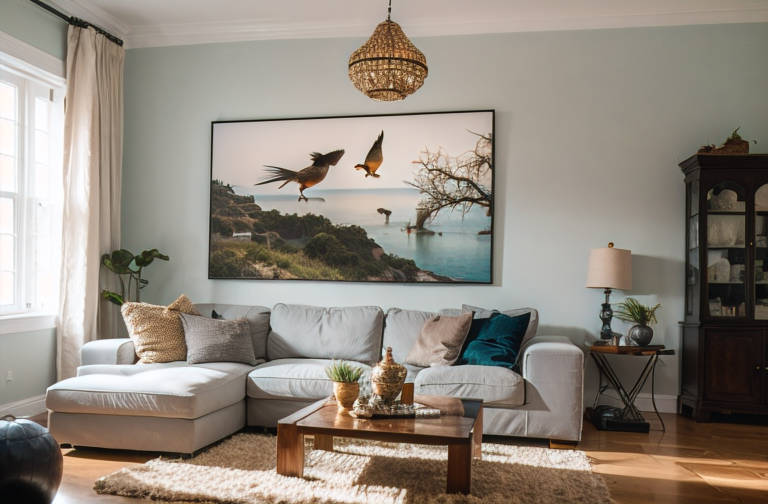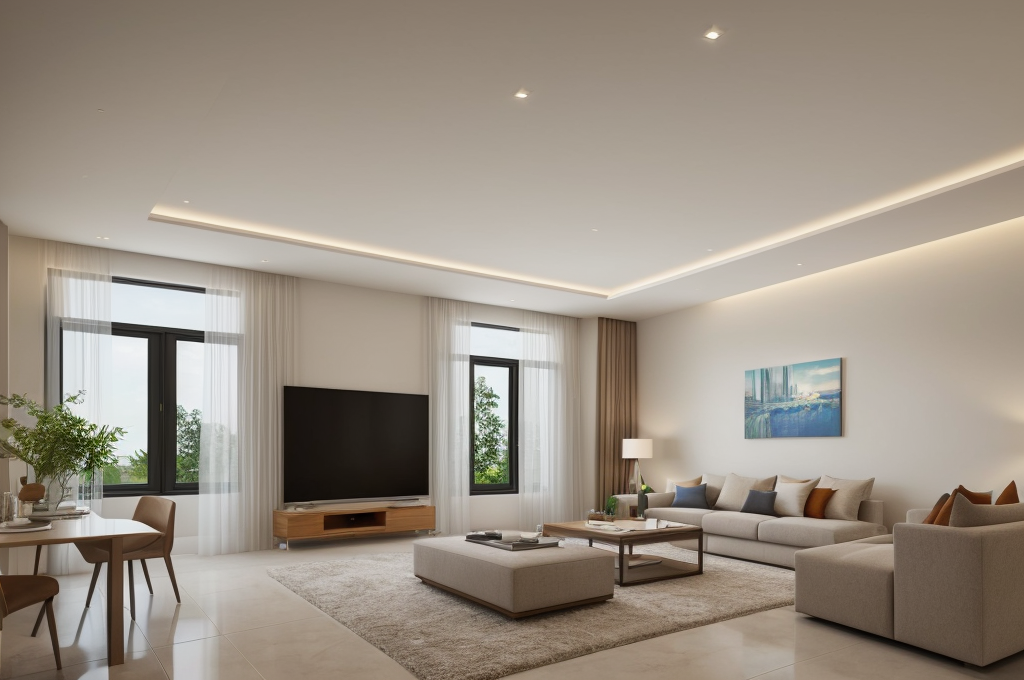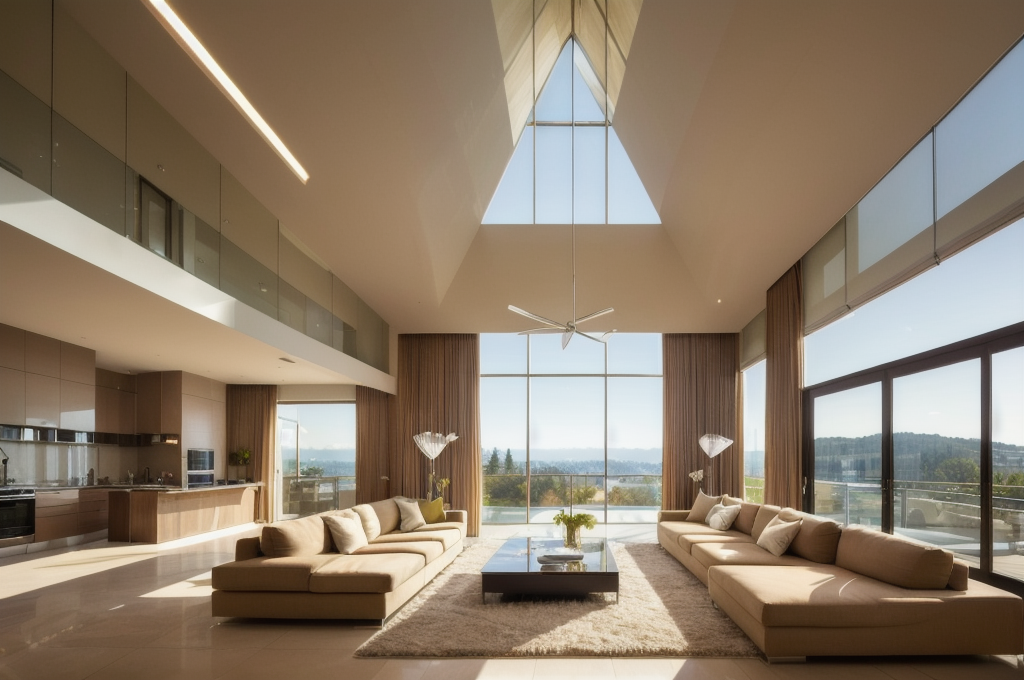Revamping a 1930s Philadelphia Row House: Maintaining History while Embracing the Modern

A 1930s Philadelphia row house was transformed into a modern space, retaining some original elements. Post-renovation, the property sold quickly, with plans for a part 2 post.
Introduction
Hello there! I’m Emma Harrison, a fervent architect of stunning 900 square feet house interior design transformations. Let’s dive right in and discover the extraordinary beauty found in Philadelphia’s unique row houses of the 1930s. 🏘️
Brief Background of the Philadelphia Row House
The Philadelphia row house, a distinctive architectural marvel, was largely popular during the early half of the 20th century. These properties are known for their narrow, deep structure with bricks or brownstone facades, giving a sense of unity to the streetscape. Each row house has an undeniable charm, echoing a tale of a bygone era, making them a precious heritage to be preserved.
Importance of Renovation in Preserving Historic Properties
Renovating these historic properties is an art I hold dear to my heart. It’s about honoring the past while incorporating modern day amenities for a home that’s both charming and functional. You see, it’s not just about adding value to the property but also helping to preserve the city’s architectural identity.🔨
If done thoughtfully, these renovations can unveil a unique allure, enhancing the property’s original features with an updated twist. It’s a delicate dance between preservation and innovation, creating an appealing fusion between history and contemporary trends – a homage to the past while embracing the virtues of modern 900 square feet house interior design. This transformative process brings out the true character of these properties, ultimately saving a piece of our cultural heritage for future generations to appreciate. 🌟
Keep reading as I take you through this thrilling journey of crafting contemporary sanctuaries from architectural masterpieces created decades ago. Let’s unearth the untapped potential within these homes, shedding light on their forgotten charm while refashioning them for modern day living.

Renovation Process
You know, transforming a space takes a little creativity, but it also involves a good deal of collaboration. This resonates particularly when I remember the renovation experience of a 900 sq ft house interior design project. We worked closely with the family as well as a retired contractor, underscoring how renovation is a finely stitched process, knitted together by various skilled hands.
Role of Professionals in the Renovation
The role of a professional designer doesn’t end with sketching the initial design concept. It extends to project management involving tasks such as procuring materials, coordinating with contractors, and ensuring the timeline is perfectly adhered to.
Retaining Original Elements Vs Incorporating New Materials
Deciding between retaining original elements or incorporating new materials is a delicate balance of sentimentality and practicality. In one of my projects, a charming 1930s row house, we decided to retain the eye catching exposed brick wall. At the same time, we brought in some fresh elements – gleaming hardwood flooring and adopted a subtle palette, with Benjamin Moore Winter White paint gracing the walls.
Major Changes and Extensions
Major changes can revitalize a home in stimulating ways. To expand the dining room for this project, for instance, we removed two closets, seamlessly maximizing the accessible space while retaining the home’s inherent character. Possibly the most thrilling part of the project was the complete kitchen overhaul. It’s astounding how a thorough revamp can breathe a new lease of life into a home.
In the grand scheme of things, my duty as a designer is to expertly guide these decisions and modifications. Renovation is not just about tearing down and building anew, rather it’s an organic process that involves nurturing spaces into their best potential versions!

Details of the Kitchen Overhaul
The transformation of my kitchen is one of my most cherished projects. It was a delightful opportunity to use my passion for raw house interior design and create a space that was both functional and visually captivating much like a sanctuary.
Key Features of the New Kitchen
Now, let’s talk about some of the features that brought this vision to life. The kitchen’s overhaul saw the incorporation of new cabinets and countertops. Custom designed, these elements became the defining features of my revamped kitchen. I carefully selected the materials, color schemes, and designs as a reflection of my love for the raw house interior design philosophy.
Considerations for a Customized Kitchen
In keeping with the theme, I contemplated using Semihandmade fronts for a truly custom kitchen look. This consideration proved fruitful. The unique fronts not only added a touch of elegance to this space, but also beautifully complemented the raw and untamed vibe.
Incorporation of Underfloor Heating
One of the more practical decisions I made was to integrate underfloor heating. This feature might seem superfluous to some, but it truly exudes luxury and comfort during those cold winter months. More importantly, this technical element subtly aligns with the raw house interior design philosophy – warm, inviting, and unpretentious.
This kitchen overhaul was a meticulous iteration of form meeting function. I carefully curated every single element to thrive in harmony, thereby ensuring the personality of the space was reflective of the raw house interior design ethos I respect so deeply.

Outcomes of the Renovation
Perceived Value Addition
Certainly, the renovation project breathed new life into my interior design for 900 sq ft house. Every updated corner, each piece of new furniture was thoughtfully chosen to elevate the space from ordinary to extraordinary. For me, the most significant value added was in creating a house that wasn’t merely aesthetically pleasing, but also functional, practical, and invoked warmth and comfort.
Subsequent Property Sale
In the world of real estate, a well designed interior can make or break a sale. This was clearly evident when I put my tastefully renovated house on the market the response was overwhelming in no time, with the property getting snapped up quicker than anticipated. A testament, undoubtedly, to the power of thoughtful design!
Plans for Future Posts
This renovation has sparked fresh visions and taught me numerous invaluable lessons. Looking ahead, I am excited to share some of these insights with you. In particular, the transformation of the second floor, which became my oasis of calm and creativity. So, stay tuned as the journey of design discovery continues to unfold. Through sharing these experiences, my goal is to inspire you to use the principles of interior design, making your space a sanctuary that tells your unique story.
Key Takeaways
The experience I had renovating a 900 square foot house was educational and fulfilling. As an upcoming interior designer, I learned many key things during the renovation process. For instance, in terms of 900 sq ft house interior design, that one has to carefully plan for space usage. Furnishing the house with all necessities without making it look overcrowded can be a delicate act to balance.
Lessons from the Renovation Process
One essential lesson learned was that interior decoration needs to be complemented by the raw house interior design. I discovered that the original structure has a significant impact on the eventual outcome of a renovation. This formed a crucial part of my renovation experience and helped me adapt my creative ideas to work with the original design of the house.
Insights on Balancing Old and New Elements in Renovation
Balancing old and new elements was a pivotal aspect during the renovation. I needed to create a modern aesthetic while preserving and incorporating some of the original elements. This gave the house a unique character without sacrificing the interior design for a 900 sq ft house. Maintaining this balance allowed me to create a unique, functional, and attractive space within the given area.
Advice for Future Renovators
For those undeniably planning future renovations, it’s important to factor in the original elements of the house. Allow these aspects to guide your remodeling process, enhancing rather than conflicting with them. It’s about creating a seamless blend of the old and new. Whether it’s a comprehensive makeover or a subtle refurbishment, always remember to harmoniously integrate the original structure with your own creative flair. You can never go wrong with this approach.
- Unlocking the Intricacies of Interior Design: Ranch-Style Homes and the Pursuit of Functionality
- Blending Tradition and Modernity: Exploring the Design of Nipa Hut and Trynagoal Tea House
- Enhancing Dining Experiences through Creative Interior Design and Rebranding in Burger Restaurants
- Mastering Home Renovation: The Crucial Roles of an Interior Designer and Effective Budget Management
- Understanding the Value of Interior Designers: Roles, Benefits, and Selection Process
- Exploring the Richness of Turkish Architecture and Interior Design through Adobe Stock and Pinterest
- Unveiling the Unique Characteristics and Design Elements of Ranch-Style Houses
- Embracing Openness and Personal Touch: The California Ranch House Interior Design Concept
- Embracing Warm Minimalism: The Rise of Brown Tones in Interior Design
- Enhancing Your New Home: Key Elements and Strategies in Interior Design
- Unveiling the Art of Luxury Interior Design: Exploration of Materials, Individual Style and Inspiration from Pinterest
- 13 Easy and Affordable Tips to Spruce Up Your Home Decor
- Exploring the Rich History and Distinctive Features of Tudor Architecture
- Exploring British Home Interiors: From Historical Evolution to Modern Adaptation
- Traversing the World of Interior Design: From Designer Profiles to DIY Ideas and Future-ready Furniture
- Contemporary Home Refinement: Leveraging Exposed Brick Design and Affordable, High-Quality Furnishings
- Exploring the Warmth and Charm of Modern Rustic Interior Design
- Enhancing Duplex and Triplex Interiors: An In-Depth Guide to Style, Lighting, and Effective Use of Space
- Creating Your Dream Bathroom: A Comprehensive Guide to Designs, Functionality, and Material Selection
- Creating Your Personal Spa: Insights into Modern Bathroom Design Trends



